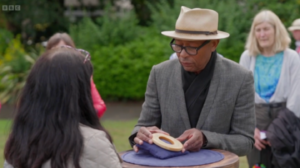As global tensions soar amidst mounting hostilities between NATO and Russia, the UK government has discreetly revitalized its civil defence strategies, urging citizens to be better prepared for potential nuclear emergencies. Although there is no immediate suggestion of a nuclear strike on British soil, heightened rhetoric from the Kremlin has triggered concern, particularly following recent threats of a “painful” response from Moscow. In light of these developments, officials have reissued survival recommendations last seriously considered during the Cold War.
Drawing from both historical contingency planning and contemporary emergency frameworks, the UK government has curated a new list of essential items that every household should have on standby in the event of a nuclear emergency or other catastrophic attack. Officials stress that preparedness is not alarmism, but a prudent measure for uncertain times.
A Modern Threat with Historical Echoes
Many older Britons recall the “Protect and Survive” campaign launched in the 1970s and early 1980s, a civil defence initiative which provided detailed instructions on how to endure a nuclear attack. While the campaign was widely mocked for its bleak optimism — including tips like hiding under doors and using white paint to reflect thermal blasts — its underlying message has regained relevance.
Today, the message has changed tone but retained urgency. Cabinet Office briefings circulated earlier this year included guidance on “civil resilience” and the need for basic self-sufficiency should state infrastructure be temporarily compromised. These documents emphasize that in the immediate aftermath of a nuclear event — or any large-scale attack on power and communication infrastructure — access to food, water, and medical assistance may be severely limited.
The Official Survival Kit: Essentials for the First 72 Hours
Here is a breakdown of the government’s suggested emergency survival kit, tailored for three days of self-reliance in the aftermath of a nuclear incident:
1. Drinking Water – 4 Litres Per Person Per Day
Access to clean water is paramount. The government recommends stockpiling bottled water or investing in a reliable water filtration device. Each individual should have at least 12 litres stored, with more for pets and basic hygiene.
2. Non-Perishable Food – Minimum Three-Day Supply
Canned vegetables, beans, high-energy snacks, and vacuum-sealed meals are advised. Anything with a long shelf life that does not require refrigeration or cooking should be prioritized.
Pro Tip: Choose items that can be eaten cold, in case cooking is impossible.
3. Battery-Operated or Wind-Up Radio
Information will be vital when digital networks fail. A radio can provide updates on fallout zones, shelter instructions, and relief operations.
4. First Aid Kit
Stock with antiseptics, bandages, gloves, painkillers, antihistamines, and any prescribed medications. Include iodine tablets to protect against radiation-induced thyroid damage if recommended by health authorities.
5. Torches and Spare Batteries
In the likely event of a power outage, torches — preferably LED — and candles are essential. A wind-up torch is an excellent backup.
6. Mobile Phone and Power Banks
Though mobile networks may falter, mobile devices can still serve as useful tools for documentation, light, and pre-downloaded emergency guidance.
7. Dust Masks and Plastic Sheeting
For radiation protection, dust masks (N95 or better) and thick plastic sheeting can be used to seal windows and doors against radioactive particles.
8. Cash in Small Denominations
In the case of electronic banking failure, cash may be the only means of trade.
9. Personal Hygiene Supplies
Include toilet paper, soap, hand sanitiser, toothbrushes, feminine hygiene products, and wet wipes.
10. Warm Blankets and Clothing
Nuclear winter scenarios may cause drastic temperature drops. Layered, warm, and waterproof clothing is vital.
Where to Shelter: Your Home’s Nuclear Safe Zone
Unlike Hollywood portrayals, survival does not require an underground bunker. British civil defence officials recommend creating a makeshift “inner core” shelter inside your home:
-
Choose a room without windows — ideally a bathroom or central hallway.
-
Line walls with dense materials: books, mattresses, filled suitcases.
-
Place your survival supplies within reach and remain sheltered for at least 48–72 hours after fallout.
Government scientists estimate that radiation levels drop to 1% of initial intensity after 48 hours, which is why the 72-hour kit is a baseline standard.
Public Communication in a Blackout
If the UK loses digital communications due to EMP or cyberattack in tandem with a nuclear detonation, backup broadcasting methods will be activated. The BBC and national radio providers maintain plans to transmit on long-wave frequencies from secret locations.
The government is also testing emergency text broadcasting systems — a program currently used for severe weather alerts — which may include radiation exposure warnings in the future.
Russia’s Escalating Threats and UK’s Response
The renewed focus on civil preparedness follows inflammatory statements from Russian officials. In April 2025, Kremlin spokesperson Dmitry Medvedev declared the West would face “painful and irreversible consequences” for its involvement in Ukraine and the Baltic region. Intelligence sources have speculated that Russia may deploy low-yield tactical nuclear devices as a deterrent rather than initiate a full-scale attack.
In response, Defence Secretary Grant Shapps confirmed the UK has “resilient and ready” military nuclear capabilities under the Trident programme but emphasized the importance of civilian readiness.
A Call for Calm — and Preparedness
Government ministers have stopped short of advising mass panic or evacuation drills, but they acknowledge the need for public awareness and readiness. In a recent address, Deputy Prime Minister Oliver Dowden stated:
“We are not predicting a nuclear confrontation. However, resilience is a duty — for governments and citizens alike. Being prepared is not paranoid, it’s responsible.”
As the world navigates volatile geopolitical waters, Britons are being asked to revisit the age-old maxim: hope for peace, but prepare for disaster.
Sidebar: Where to Learn More
-
Visit www.gov.uk/prepare for official emergency planning resources.
-
Local councils are distributing updated pamphlets and hosting community preparedness sessions.







